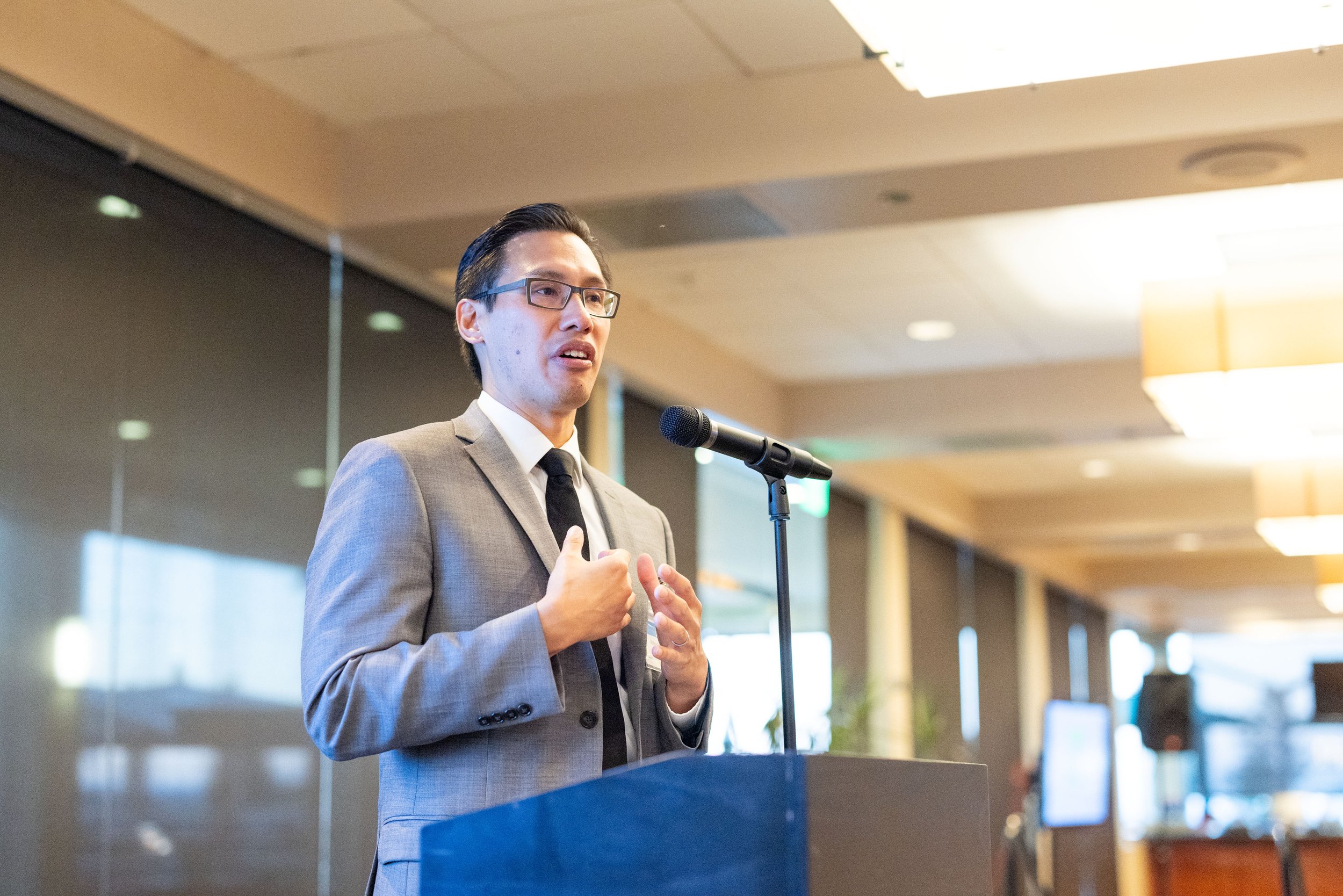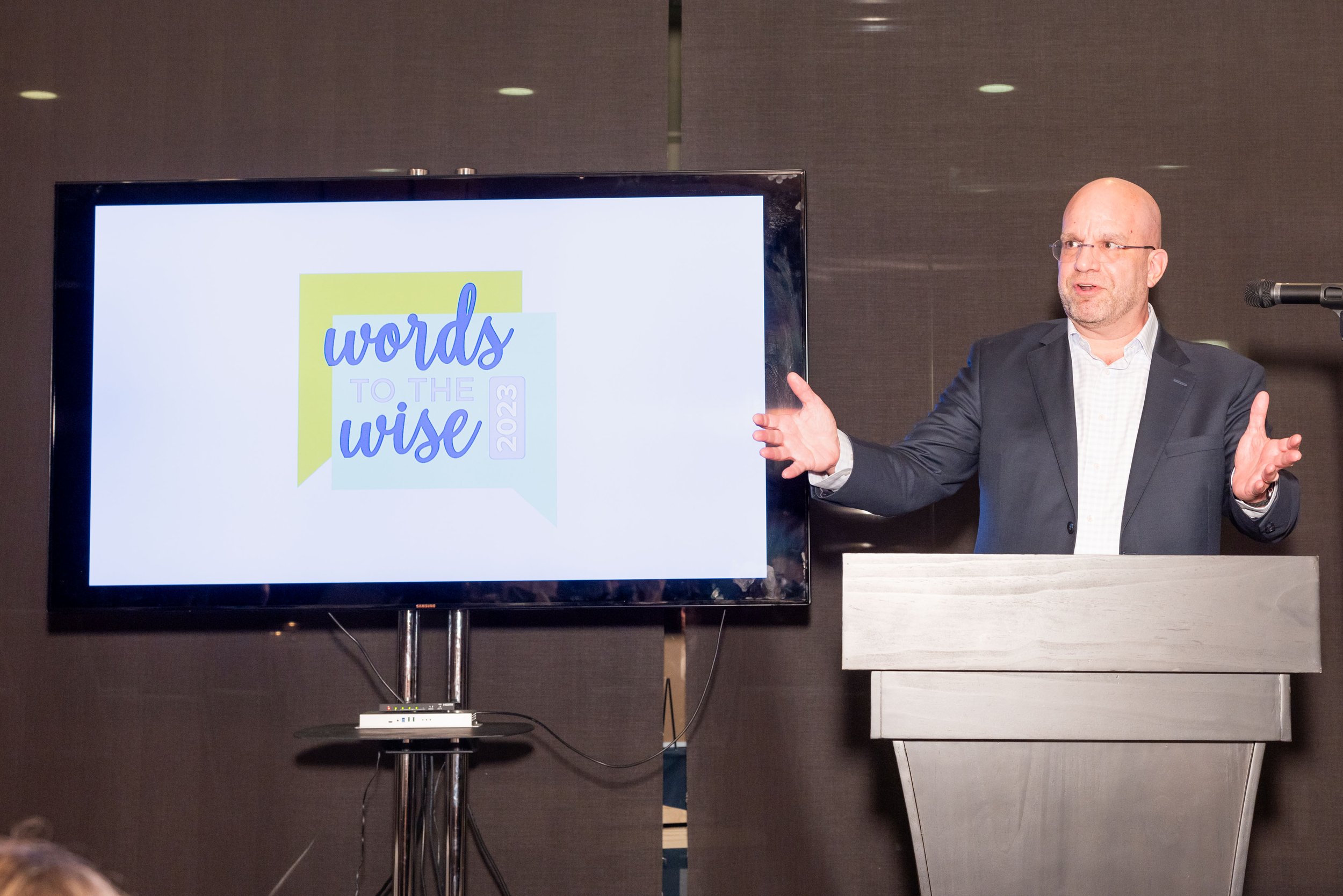

AG Bonta Words to the Wise Message
Words to the Wise 2023 Highlights
Words to the Wise 2023 Panel Highlights (to upload)
RECAP: Words To The Wise - Exploring AI’s Impact
We gathered to celebrate and support SVUDL’s impact in helping students uncover and hone the power of their voices, so they can confidently step into their full potential as professional and community leaders. The three-course dinner was followed by a provocative panel of industry experts in Artificial Intelligence, as they explored AI's impact on the workforce and existing economic inequalities - a topic our students will be delving into this coming school year.
The panelists included:
Ilana Golbin Blumenfeld, Director in PwC Labs, where she serves as one of the leads for Artificial Intelligence.
Brittan Heller, founder of the Center for Digital Civil Rights, an innovation lab for human and civil rights organizations where she works at the intersection of technology, human rights, and the law, and is an expert on content moderation and the movement from online conduct to offline violence.
Unni Nair, Global Head of Government Affairs & Public Policy at Google, focuses on operationalizing the AI Principles across Google as part of its Responsible Innovation team.
The panel moderator was Larry Magid, Ed.D, a technology journalist and an Internet safety advocate. He served for 20 years as the on-air technology analyst for CBS News and 19 years as a syndicated columnist for the Los Angeles Times.
Larry Magid began the discussion with a joke about how only two classes served him well over a lifetime of education: junior high typing class and Speech and Debate class! He noted that the skills he acquired in Speech and Debate continue to serve him well in academic, journalism, and nonprofit management roles. He emphasized that if an anchor asked him a question on live radio that he was unprepared for, he was especially grateful for Speech and Debate skills.
Panelist Brittan Heller spoke about the impact of technology on disparate populations around the world. She did field work in Uganda to look at how violence instigated by social media impacted the region, and to develop a community-centric definition of hate speech. While there, she learned that the worst thing one politician could call another was a type of soft drink. She noted that this would never be picked up by AI -driven content moderation, a prime example of the competing layers of context.
Unni Nair then had an opportunity to speak on the topic. He noted that in Silicon Valley, people can get seduced by the idea of technological innovation, rather than fully consider its impacts. He underscored the maturity curve of technology and urged that we pause to ask the following questions: is this socially beneficial? Can it be misused? Can it create harm? What is a social benefit? What is a business benefit?
He suggested we try to be careful with sensitive applications of AI, especially with autonomous decisions like loan approvals or job recruitment. He also suggests that before applications get released in the world, that we stress test them, meaning try to break the application first, in order to mitigate against the worst harms in the world.
Ilana Golbin Blumenfeld took her turn to touch on the topic. She spoke of her optimism for AI, but with the caveat of our obligation to be mindful of how tech will ultimately be used. Are we putting the appropriate safeguards in place? AI is already impacting humanity from cradle to grave in that an algorithm currently underpins almost every decision in our lives, such as college admissions. She urged that layering in human wisdom, tacit knowledge, and experience can be critical. We must use technology appropriately in augmenting our decision making.
Moderator Dr. Larry Magid reminded the audience of the role paradigm shifts have played in history: the web, broadband, and now generative AI. With every shift, there are new winners and losers. Will the population traditionally marginalized be collectively “losers?” Paradigm shifts tend to favor the same class of people as before the sea change.
Ilana Golbin Blumenfeld emphasized that not everyone has access to a computer and the internet, and therefore it is not fair to expect others to keep pace with innovation. We must find ways to mitigate the digital divide so that everyone can impart their own intuition and knowledge on how these systems operate because we are missing the valuable insights that these individuals have to contribute.
Brittan Heller touched on how AI can be applied to judicial systems: if generative AI machine learning is a pattern recognition machine, then it is going to perpetuate the patterns that we already see. She urged that we ensure that governments do not utilize AI to rewrite part of judicial opinions because substantial life, liberty, and property interests are at stake. Otherwise, we may find an entrenchment of unequal outcomes.
The panelists ended with a collective call for support for organizations like SVUDL that help young people to raise their voices, and to speak out and be heard. They reinforced the need that every voice be included in the workforce in general, especially in tech and AI.
Attorney General Rob Bonta, recipient of this year's Speaker of the Year Award, also spoke of the importance of diversity. In his video acceptance, he reflected upon his parents as social justice warriors who taught him that everyone has the agency to fight for and with one another. He urged that we give every Californian a voice. He noted that young people are our future leaders, but also our leaders of today. He said that Speech and Debate skills help every SVUDL student navigate opposing views, and in a world ripe with bitter divisiveness, respectful disagreement is needed now more than ever. Even when we stand on different sides, we are all connected. . This aligns with SVUDL’s work to ensure a future where broader perspectives are reflected and represented at the highest levels of government and industry, and in which people from all sides are able to find common ground.
Topping off the event was the Fund-A-Need, where guests raised their paddles to help close the opportunity gap for under-resourced high school students in Silicon Valley. Thank you to all of the attendees, sponsors, volunteers, Board members, Legal Advisory Committee members, and staff who made this event possible. Together, we raised more than $360,000 to help students uncover and hone the power of their voices, so they can confidently step into their full potential as professional and community leaders.
THANK YOU TO ALL OF OUR GENEROUS 2023 SPONSORS FOR MAKING THIS EVENT POSSIBLE!
PLATINUM
GOLD
SILVER
BRONZE















































